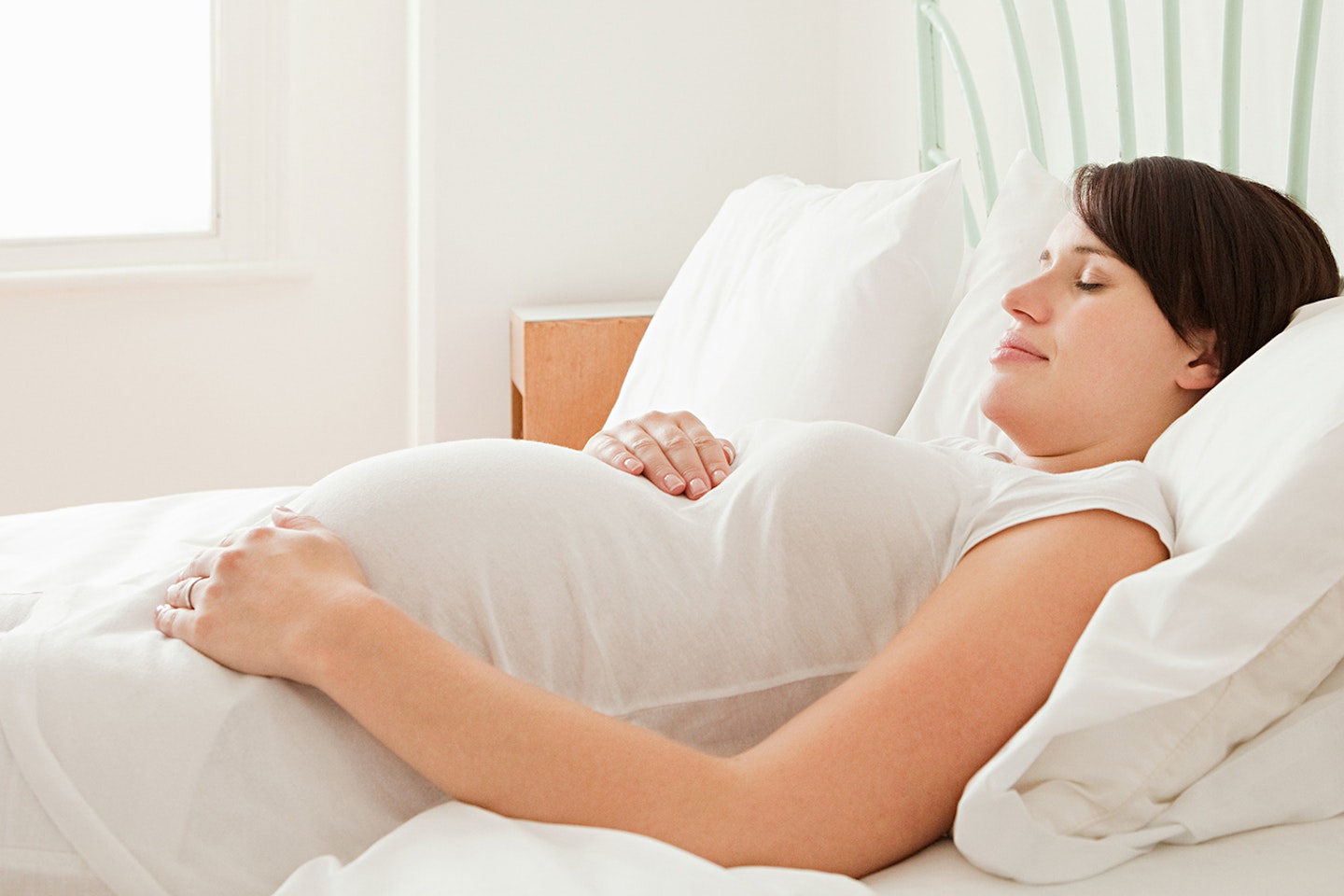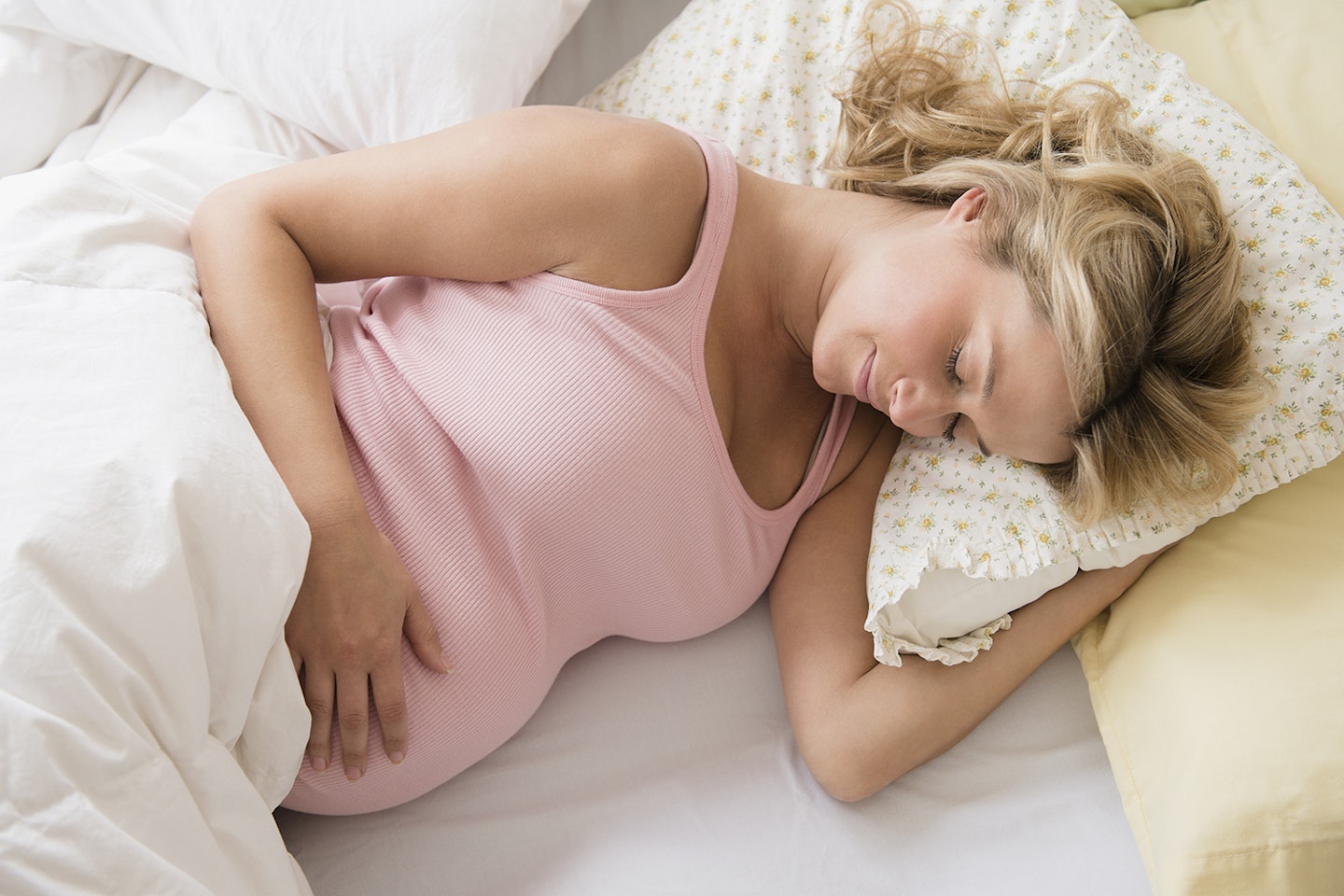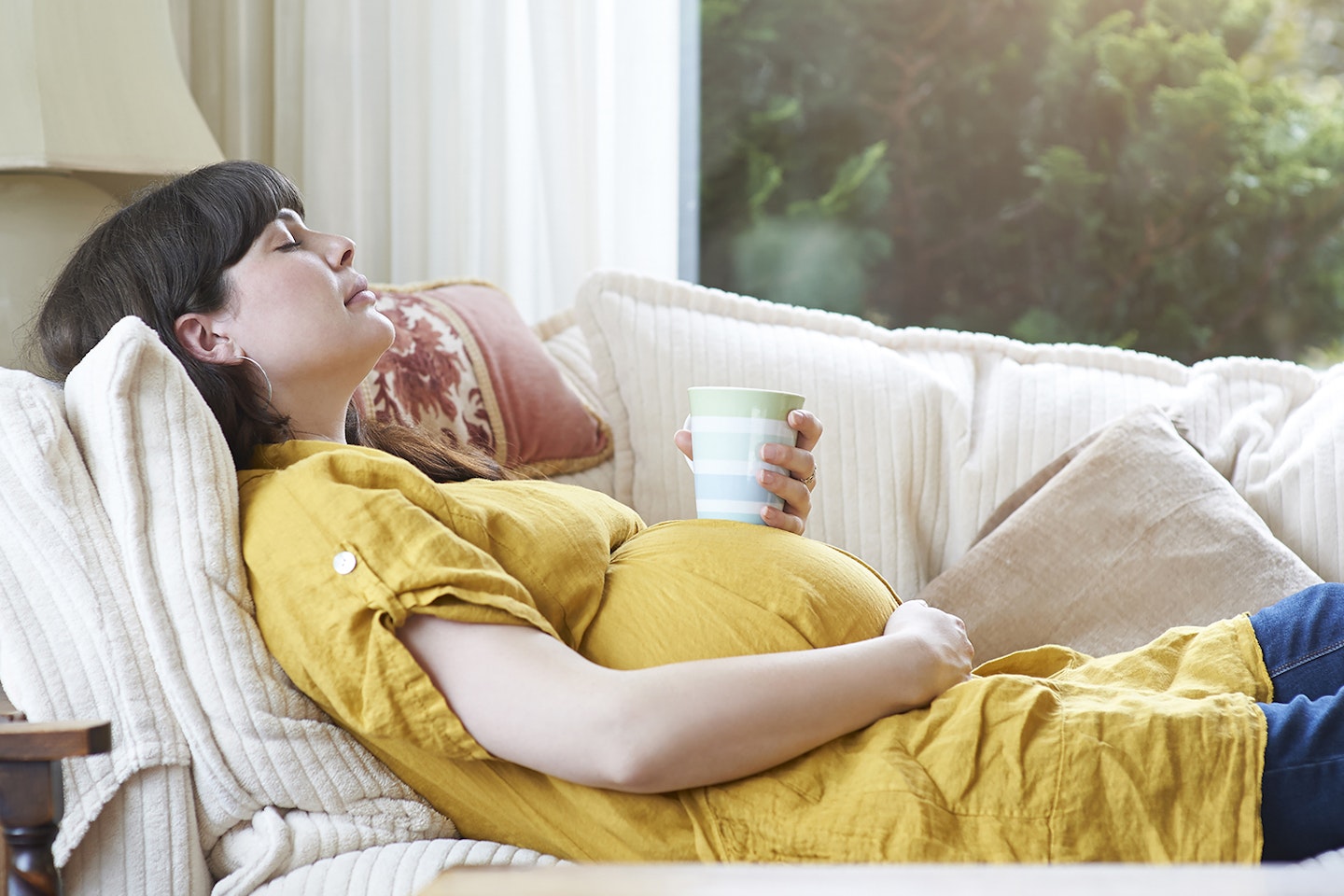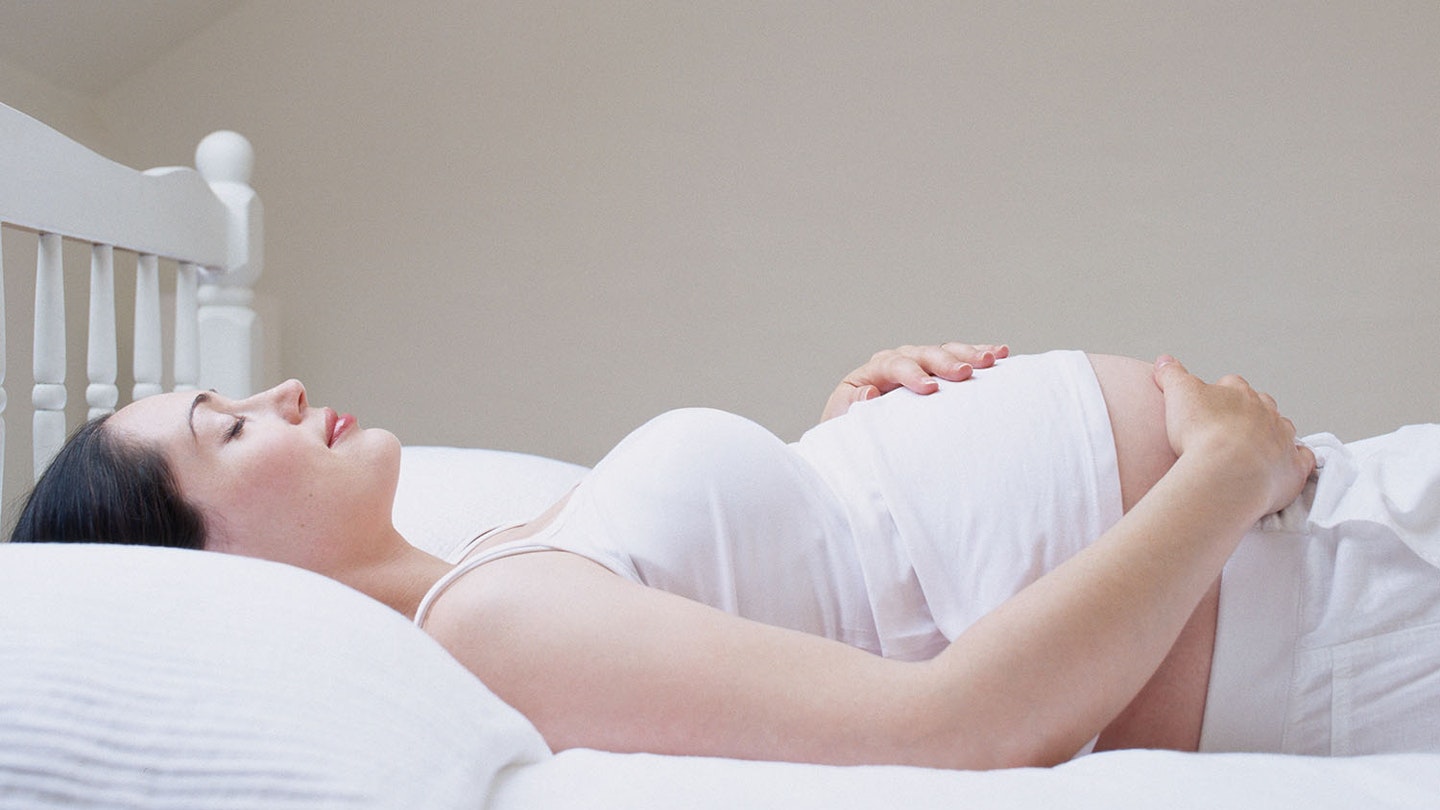New research has found that sleeping on your back in the third trimester of pregnancy could increase the risk of having a stillbirth by up to four times
We're not ones for scaremongering - we don't like to alarm people when there's not just cause.
But stillbirth charity Tommy's have been researching into sleeping positions and whether it could be linked to stillbirth after a New Zealand study found a link between the two.
They have found that there's a strong link between stillbirth and expectant mothers sleeping on their back during the late stages of pregnancy.

The research, which was originally undertaken by a team from the University of Auckland in New Zealand, has now been confirmed by a British team based in Manchester and headed up by Professor Alex Heazell, Clinical Director of Tommy's Stillbirth Research Centre at St Mary's Hospital.
This is now the third trial into a mother's sleeping position that has found that women who slept on their back in the third trimester of pregnancy were four times more likely to have a late stillbirth.
A stillbirth is the birth of a baby that has died in the womb from 24 weeks of pregnancy. Before 24 weeks of pregnancy, it is classed as a miscarriage.
According to Tommy's, the link is clear between going to sleep on your back in the third trimester - after 28 weeks of pregnancy. It doesn't just mean sleeping during the night - it also refers to naps.
READ MORE | Stillbirth: Causes, symptoms, risks and birth process explained

The study asked 400 women who'd had a stillbirth at 28 weeks or later to complete a questionnaire about their sleeping habits, and the findings showed that women were up to four times more likely to have had a stillbirth and slept on their backs.
A further study on the same topic, funded by a number of charities, is being undertaken at the Tommy’s stillbirth research centre, the results of which will be published in July or August.
Tommy's have provided some helpful information and advice for pregnant women.
What happens if I wake up on my back in pregnancy?
Tommy's advises that the research has primarily been looking into the position that you start off sleeping in, and recommended that if you wake up on your back, just go back to sleep on your side.
What could cause the increased risk of stillbirth when sleeping on your back?
If you are sleeping on your back in your third trimester, the combined weight of baby and womb puts pressure on other organs in your body.
Deirdre de Barra, Health Campaigns Manager at Tommy's, said: "We also already know that sleeping on your back puts pressure onto the main blood vessels that supply the uterus which could restrict blood flow/oxygen to the baby. In this position, the baby is less active and the heart-rate patterns change, which clinicians think is due to lower oxygen levels in the baby when the mother lies on her back."

Tips for sleeping on your side in pregnancy, by Tommy's
If you have any worries whatsoever, call Tommy's free PregnancyLine on 0800 0147 800 - open 9-5, Monday to Friday.
Did you make sure to sleep on your side during pregnancy? What do you think of the research? Let us know over on Facebook and Twitter.
READ MORE...
Stillbirth: One mum shares her heartbreaking story of losing her first child
